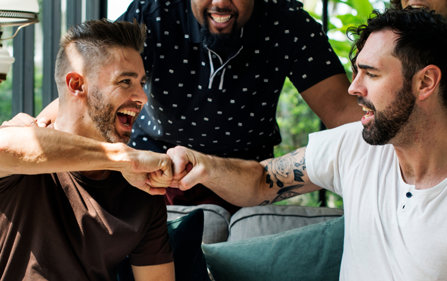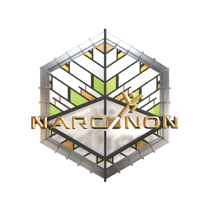How Social Interaction Can Inspire Sobriety

For some time, addicts, addiction experts, family members of addicts, treatment center employees, scientists, and others have tried to probe the secrets of addiction. For decades, centuries even, mankind has sought to unravel this seemingly universal flaw of human nature—the flaw of addiction. What causes people to become addicted? What can reverse addiction? What can prevent addiction?
While this article by no means seeks to answer all of the questions surrounding addiction, there is some relatively recent research which may answer one part of the equation. A group of researchers from Nature Neuroscience published a study that might explain a lot of our questions about why people become addicted to drugs, what about addiction recovery might work, and what might not.
Let’s Talk About Scientific Research
So much of science is incomplete (and scientists openly admit this) because so much of science seeks to use rats and not human beings as test subjects. Rats are not humans. But with that being said, we can learn a lot from what scientific research does give us. We might not arrive at hard, concrete facts but we can certainly extrapolate much from published data (even if the scientists who published it used rodents as test subjects and not you and me).
So we have to accept a certain degree of disclaimer, room for error one could say, when examining scientific research.
That said, Nature Neuroscience published a research paper in 2018 that sought to explore the effect of group activity and isolation on rat behavior. The goal of this research was to see if we could extrapolate anything about human behavior.
The research pertained specifically to how likely rats were to consume drug-laced food and water when they were alone versus when they were engaged with other rats. This research was discussed in an article by the National Institute on Drug Abuse.
According to the NIDA article: “When given a choice, rats repeatedly chose social interaction over self-administration of heroin or methamphetamine. This held true even for rats that had previously been using heroin or methamphetamine in a ‘compulsive’ way (like humans with an SUD [substance use disorder]).”
This is fascinating. In every case studied, the rats seemed exuberant to choose peer contact over access to drugs when they were housed with other, non-drug-using peers. This phenomenon was evident even in the rats that had previously taken drug-laced water and food. Only when the rats were taken out of their peer environments and were put into isolation did they return to drug use.
Is it too much of an extrapolation to think that the same might be true of humans? That we might function far better in groups, and that group engagement with like-minded individuals might be a huge piece of the puzzle in solving addiction?
The NIDA publication concluded with this statement:
“… social scientists have reported for decades—feelings of connectedness to society can protect some (not all) people against SUDs.”
“The protective effects of social interaction are more straightforward for rats than for people, but even so, the new findings in rats are in accord with what social scientists have reported for decades—feelings of connectedness to society can protect some (not all) people against SUDs. The rats that are less strongly protected by social contact could be a model for understanding and treating their human counterparts.”
The disclaimer is there. Again, human beings are not rats; we’re a lot more complicated, for one thing. But at the same time, we can learn something valuable from that research. Humans benefit significantly in the presence of group interaction. And without group interaction, it’s more difficult for us to address our issues and struggles. When isolated, it is more likely for us to turn to drugs and alcohol as coping mechanisms.
Addiction Recovery Is a Group Effort
Every step and phase of the recovery process is a group effort. This point is often lost in the overwhelming wealth of information out there on addiction and treatment. But let’s look at it.
What is addiction treatment if not a group setting where one goes to seek help from a group? Even if a drug rehab focuses much of its efforts on one-on-one care (nothing wrong with that), every residential drug treatment center benefits from the group-like nature of the treatment setting. Here we have a residential facility, staffed with treatment experts, attended by recovering addicts, where people come together and heal in a group.
And now let’s look at a recovering addict’s life post-rehab. Where does a recovering addict get much of his strength when faced with the challenges of life after rehab? He gets it from his support network—his group. This could be his family, his support group, the meetings he attends, his church, his co-workers, etc., but it’s likely going to be a group of people that recovering addicts get the most help and support from.
Why is it that so many people in recovery choose to accept positions working in drug and alcohol treatment centers? For one thing, it’s an excellent job for them where they can continue to heal and grow. Furthermore, recovering addicts know the power of the group and they know the unlimited benefits that they can provide to others who are currently struggling with addiction. But they also know that they will be far more effective in helping others if they do so in a group setting.
Don’t Go It Alone

Human beings are an odd species. Some of the most miraculous discoveries of our species have come from individuals. Many of our most significant advances in science, art, culture, spirituality, technology, and government have come from one mind, one person.
But we cannot survive alone. Human beings are best suited for optimum living when they are in groups of like-minded individuals who share similar goals and aspirations. This applies to all realms of life, including addiction treatment and recovery.
If you are alone and struggling with a drug habit, seek help from a group. Don’t lock yourself in a room and try to do it on your own. You are strong, and you are capable by yourself, but your strength is magnified when you associate yourself with people who have similar goals and journeys as you.
Get connected with people who want to help you and who know what you are going through. Get in touch with individuals who see your struggle and who want to help you address it. Seek help from a residential treatment center today, and don’t give up on you.
Sources:
- https://www.nature.com/articles/s41593-018-0246-6
- https://www.drugabuse.gov/news-events/news-releases/2018/10/study-shows-impact-social-interactions-addictive-behavior
Reviewed and Edited by Claire Pinelli, ICAADC, CCS, LADC, RAS, MCAP


